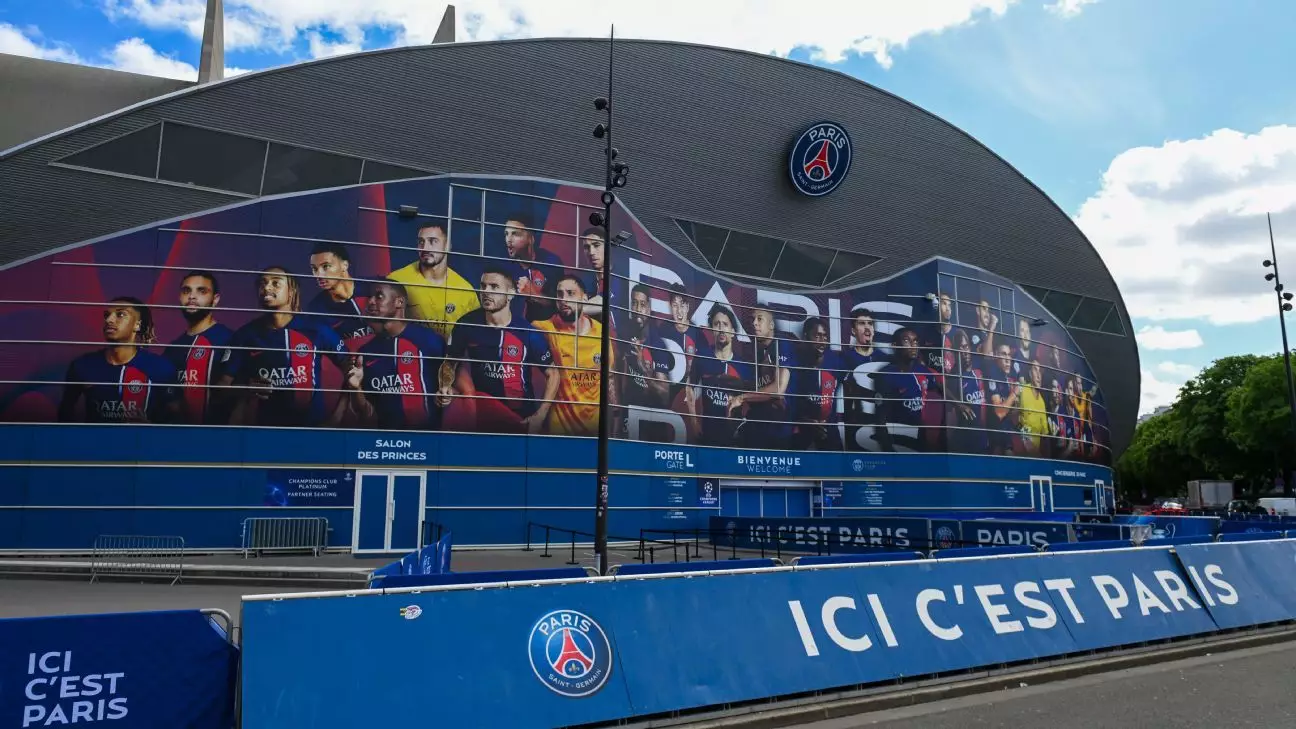As the garden of global investments continually grows more intricate, Qatar’s economic strategies reveal a notable trend: a significant retrenchment from its previous enthusiasm for investment in France. High-level sources, including voices from Paris Saint-Germain (PSG), indicate that the Qatar Investment Authority (QIA) and Qatar Sports Investments (QSI) have begun to dial back their financial involvements in the French market. This development signals a change of heart from what was once a strong commitment to building a sports and media presence in France.
For many years, Qatar’s investment approach in France was marked by aggressive expansion. With a sovereign wealth fund estimated at around €500 billion, the QIA positioned itself as a powerhouse in various sectors, from real estate to sports. PSG, under QSI since 2011, saw substantial financial influxes used for acquiring some of the globe’s best football talent—including names like Neymar and Lionel Messi. However, whispers of a cooling investment climate suggest a growing dissatisfaction among Qatari officials with the reception and treatment they have encountered within France.
According to sources, this recalibration of interests is not a knee-jerk reaction to current political or legal challenges, such as the investigation surrounding PSG president Nasser Al-Khelaifi. The investigations focus on allegations relating to his connections with a French businessman and do not tie directly to his management of PSG. Nevertheless, the scrutiny surrounding Al-Khelaifi highlights the concerns that may be driving the Qatari leadership to reconsider their commitment to the French market.
The decision to slow down investment is rooted in discontent with what Qatari officials perceive as bias from local media, challenges with the French judicial system, and pressures from political figures. The narrative they perpetuate is that their ventures are often met with skepticism and critique rather than support, as evidenced by their gradual sell-off of various French properties and investments. France, once classified as a priority market for QIA and its affiliates, now faces scrutiny over its willingness to embrace foreign wealth and enterprise.
This sentiment reflects a wider trend wherein foreign stakeholders recalibrate their strategies in the face of rising anti-business sentiment, complex legal landscapes, and nationalistic media portrayals. For Qatar—a nation that has leveraged sports as a soft power tool—these dynamics can complicate their long-term ambitions and threaten returns on investment.
While QSI continues to explore alternative investment avenues—evidenced by the recent minority stake acquisition by American investment fund Arctos alongside NBA star Kevin Durant—the wind of change suggests global investors must tread carefully. The movement out of France spells potential struggles for PSG, who, despite their domestic successes, have yet to fulfill QSI’s dream of a Champions League triumph. The appetite for investment may pivot around newer markets, away from the challenges presented by established ones.
Coupled with QSI’s foray into clubs beyond France, including the Portuguese Braga, it remains to be seen whether this diversification will yield the desired impact or merely serve to mask an underlying frustration with the French market. Meanwhile, beIN Media Group’s discussions with Saudi Arabia signal an intention to expand their media rights business, further decoupling from the French business landscape.
The recent shift in Qatar’s investment focus illuminates the complexities and challenges faced by foreign investors in France. With persistent investigations and an increasingly critical home front, Qatar’s financial narrative seems on the verge of redefinition. The Arab state, once viewed as an authoritative figure in French football, faces questions about its strategic investments, future roles, and the legacy of its ventures. As stakeholders like QIA step back, the implications for PSG, Ligue 1 and, ultimately, French football as a whole, remain to be fully understood. One thing remains clear: the landscape of global investments is ever-changing, and adaptability may be the only constant.

